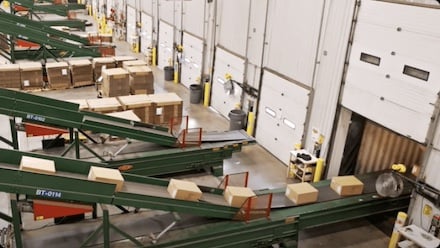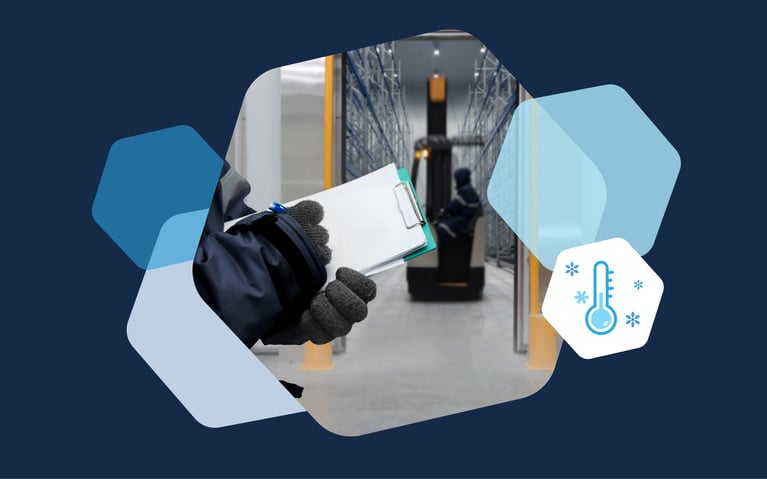Effective warehousing is crucial for businesses seeking to maintain smooth operations, manage inventory efficiently and deliver an exceptional customer experience. However, handling luxury goods, government supplies and other specialized products or industries, the complexities multiply. For instance, luxury goods require heightened security and climate-controlled environments to preserve their value, while government sectors demand stringent compliance and meticulous record-keeping. Unique industries, such as pharmaceuticals or custom manufacturing, pose their own set of challenges, such as regulatory compliance and specialized storage conditions.
We’ll delve into the distinct warehousing challenges various sectors face and to provide insightful solutions to help businesses navigate warehousing and fulfillment challenges. By understanding the nuances of each industry, it’s easier to identify specific needs and devise strategies to optimize fulfillment operations. Whether you're dealing with high-value items that require extra security or specialized products that need unique handling, this guide will equip you with the knowledge to enhance your warehousing capabilities and ensure seamless fulfillment.
Challenges and solutions in warehousing luxury goods
In the luxury goods market, it’s not uncommon to see a $10,000 purse or $1200 shoes. This growing industry is expected to generate a revenue of US$368.90bn in 2024 alone. Because of the value, warehousing and luxury goods fulfillment present unique challenges that demand specialized solutions. Effective handling of high-value items requires a deep understanding of everything from security concerns to climate control and precise inventory management.
Challenges
- Risk of theft and fraud: Luxury goods are prime targets for theft and fraud due to their high value and desirability. The risk is not only from external threats but also potential internal issues. For instance, a warehouse storing high-end watches must ensure that every access point is secure to prevent unauthorized entry.
- The need for controlled environments: Luxury items often require specific environmental conditions to maintain their quality. For instance, fine wines need precise temperature and humidity levels to prevent spoilage.
- Improper storage: Improper storage can lead to significant losses. High-end leather goods, for example, can become damaged in environments that are too humid or too dry. A luxury watch can lose its functionality if exposed to extreme temperatures. Therefore, maintaining the right climate is not just a preference but a necessity for preserving the value and integrity of luxury items.
- Keeping track of high-value, low-volume items: Luxury goods often fall into the category of high-value, low-volume items, which require meticulous inventory management. Accurate tracking is essential to ensure that each item is accounted for and its location is known at all times. For instance, managing a collection of limited-edition handbags requires a system that can monitor each item's movement within the warehouse.
Solutions
- Advanced surveillance systems: Installing comprehensive surveillance systems with high-resolution cameras can deter potential thefts and provide evidence in case of any incidents. These systems should cover all areas of the warehouse, ensuring no blind spots.
- Use of biometric access controls: Biometric access controls add an extra layer of security by ensuring that only authorized personnel can enter sensitive areas. This reduces the risk of internal theft and ensures that luxury goods are handled only by trusted individuals.
- Temperature and humidity control: High-quality HVAC systems are essential for maintaining the required climate conditions within the warehouse. These systems should be capable of precise adjustments to temperature and humidity levels to suit the specific needs of different luxury items.
- Regular maintenance and monitoring of storage conditions: Regular checks and maintenance of HVAC systems ensure that they operate efficiently and consistently. Monitoring systems can alert management to any deviations in climate conditions, allowing for quick corrective actions to prevent damage to the goods.
- Utilizing RFID and barcode technologies: RFID and barcode technologies streamline the tracking process, making it easier to monitor the movement of goods within the warehouse. These technologies reduce human error and increase the accuracy of inventory records.
- Real-time tracking software: Real-time tracking software provides up-to-date information on inventory levels and the location of each item. This transparency allows for better inventory management and faster response times to fulfill orders, enhancing overall efficiency and customer satisfaction.
Challenges and solutions in government warehousing
Government (or public) sectors face unique challenges for warehousing and fulfillment operations, often requiring specialized solutions to address stringent regulatory requirements, the handling of sensitive materials and efficient warehouse space management. By addressing these challenges with tailored solutions, government sectors can ensure that their warehousing operations are efficient, secure and compliant with all necessary regulations. This not only improves the management of resources but also enhances the overall effectiveness of government services.
Challenges
- Adherence to strict government regulations: Government warehousing must comply with a myriad of regulations to ensure the safety, security and proper management of stored goods. These regulations can range from general safety protocols to specific handling procedures for certain types of materials.
- Documentation and audit trails: Maintaining thorough documentation and clear audit trails is crucial for government warehouses. This ensures transparency and accountability, which are essential for regulatory compliance and for providing proof of proper handling during audits.
- Proper storage of classified and sensitive materials: Government warehouses often store classified or sensitive materials that require specialized handling procedures to ensure their security and integrity. This includes confidential documents, sensitive electronic equipment and other high-security items.
- Specialized handling procedures: The handling of sensitive materials often requires trained personnel and specific protocols to prevent unauthorized access and ensure that these materials are protected from damage or theft.
- Efficient use of available space: Government operations must manage large volumes of diverse items, ranging from office supplies to emergency relief materials. Efficient space management is crucial to ensure that all items are stored in an organized manner and can be accessed quickly when needed.
- Managing large volumes of diverse items: The variety of items stored in government warehouses can complicate space management. Effective categorization and storage solutions are necessary to keep the warehouse organized and ensure easy retrieval of items.
Solutions
- Implementing compliance management software: Using specialized software to manage compliance can help ensure that all regulatory requirements are met. This software can track regulations, manage documentation and provide alerts for compliance issues.
- Regular regulatory requirement staff training: Ongoing training programs for staff ensure that everyone is aware of the latest regulations and proper procedures for handling and storing materials. This helps maintain compliance and reduces the risk of regulatory breaches.
- Designated areas for sensitive materials: Creating specific zones within the warehouse for the storage of sensitive materials can enhance security. These zones should have restricted access and additional security measures.
- Secure containers and tamper-evident seals: Storing sensitive materials in secure containers with tamper-evident seals can help prevent unauthorized access and ensure the integrity of these items.
- Vertical storage solutions: Utilizing vertical storage solutions, such as high shelving and mezzanines, can maximize the use of available space and allow for the storage of more items within the same footprint.
- Use of automated storage and retrieval systems (AS/RS): Automated systems can improve efficiency and accuracy in managing inventory. These systems can quickly retrieve items, reduce labor costs and enhance the organization of the warehouse.
Other unique warehousing challenges
Warehousing challenges are not limited to luxury goods or government sectors. Numerous industries face unique hurdles that require customized solutions to ensure efficient and secure storage. Understanding these challenges is critical for businesses that handle unconventional products or operate in specialized markets.
Specialized storage requirements
Handling items with unique shapes and sizes often demands custom storage solutions. For example, a company storing large art pieces or sculptures might need bespoke shelving units designed to accommodate irregular dimensions without causing damage. Similarly, businesses dealing with heavy machinery parts or large fitness equipment must ensure their storage systems can bear the weight and prevent any potential hazards.
Risk management
Managing risks associated with unique inventory is paramount. Items that are rare, fragile or of high value require special attention to mitigate potential damage, loss or theft. Insurance and liability considerations play a significant role; for instance, a warehouse storing antique furniture must have comprehensive coverage to protect against accidental damage or environmental factors that could deteriorate the items.
Logistics coordination
Effective logistics coordination is crucial for the timely and secure transport of unique items. Coordination with specialized logistics providers who understand the specific needs of unusual products is essential. For example, transporting delicate scientific instruments may require climate-controlled vehicles and specialized handling procedures to prevent damage during transit.
Solutions for unique industry warehousing
Addressing the distinctive challenges of unique industry warehousing requires innovative solutions tailored to the specific needs of the inventory. From custom storage designs to comprehensive risk management plans, these solutions ensure the safe and efficient handling of specialized goods.
Custom storage solutions
Designing bespoke storage systems is vital for accommodating items with unconventional shapes and sizes. Adaptable shelving and containers that can be easily modified to fit different dimensions are essential. For instance, modular shelving units can be adjusted to store anything from musical instruments to oversized artwork, ensuring optimal use of space and protection of the items.
Comprehensive risk management plans
Developing detailed risk mitigation strategies helps safeguard unique inventory from potential threats. This includes investing in appropriate insurance coverage tailored to the specific risks associated with the stored items. A business dealing with rare collectibles, for example, should have insurance that covers not only theft but also damage from environmental factors like humidity and temperature fluctuations.
Efficient logistics management
Partnering with specialized logistics companies ensures that unique items are transported securely and efficiently. These providers often have tracking and coordination software allows for real-time monitoring of shipments, reducing the risk of loss or damage.
Cart.com for your fulfillment needs
Cart.com offers fulfillment technology that enables real-time tracking and precise inventory management, essential for handling unique warehousing needs across diverse industries. Our expertise ensures that specialized items are stored and managed with the highest standards of care and security. Contact our team to learn how we can streamline logistics coordination and risk management and provide tailored solutions that optimize efficiency and mitigate potential issues.
Subscribe to our emails for the latest industry insights!
By entering your email, you agree to receive marketing emails from Cart.com








